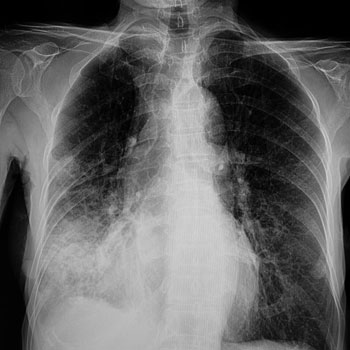Best career paths not always straight lines
Nontraditional backgrounds and varied job paths reflect how broad knowledge and experiences, like those acquired by many internal medicine physicians, can lead to career success.
“Life is very messy,” Sanjay Patel, MD, FACP, warned attendees during an early career session at CONVERGE 2024, the annual meeting of the Society of Hospital Medicine, held in San Diego in mid-April.
However, this adage might not seem true at the start of a career in medicine, he noted. “Probably a lot of our experiences … going into undergraduate, then medical school, getting into residency, it's always, ‘What's the next step? What's the next step? What's the next step?’ And then you graduate and you say, ‘All right, well, what am I going to do now?’”

At that point and moving forward, it can be helpful to know that a successful medical career does not necessarily proceed in a straight line, said Dr. Patel, a hospitalist and internal medicine associate program director at OhioHealth Riverside Methodist Hospital in Columbus, Ohio.
He offered his own experiences as an example. “I was a computer programmer before I went to medical school. Once I finished training, I had a brief stint as a [quality improvement] director for our division of hospital medicine. I tried to mesh clinical informatics with my prior experience being a computer programmer; then I pivoted to overseeing a procedure team and a point-of-care ultrasound curriculum.”
Now his focus is on medical education. “There are a lot of similarities in those things, but they've also been very different experiences, and a lot of experiences that I don't know that I would have necessarily chosen to take on my own,” said Dr. Patel. “But I tried to push myself to say, ‘Why don't I try something new to see what skills I can develop? And how do I then bring those skills into what I'm doing next?’”
He and two copresenters highlighted how broad knowledge and experiences, like those acquired by many internal medicine physicians, can lead to success during a conference session inspired by David Epstein's book “Range: Why Generalists Triumph in a Specialized World.”
Career opportunities in medicine may not always appear related when they come up, but your perspective may change with hindsight, Dr. Patel noted. “You may have an opportunity now to advance in something that you're really interested in, and then another opportunity comes up. Maybe it's not exactly what you want to do,” he said. “And you figure that out and then figure out how to pivot that.”
The key to making those turns work is identifying the lessons provided by each role, he advised. “Look back and say, ‘What about that experience that I just had can I learn from, and how can I bring that into my next experience? What value can I find from that?’” he said. “We develop into who we are based on the experiences that we have, the people that we meet along the way.”
Such diversity of experience is particularly important for hospitalists, according to Dr. Patel. “We are the ones that know lots of different things about what's going on in the hospital that many people don't because we are in so many different spaces in the hospital,” he said. That broad perspective can help with problem-solving, revealing multifaceted solutions that those who are more narrowly focused might not see.
If the solution you initially develop for a problem doesn't work, remember that's not necessarily a failure, added Allison Ashford, MD, FACP, a med-peds hospitalist and program director of medicine-pediatrics at the University of Nebraska Medical Center in Omaha.
“The trial-and-error approach is actually a really great approach,” she said. “There's a lot of data that would say that process works a heck of a lot better than the linear start-to-finish.”
Research has shown that people actually get and retain more information when the learning process isn't too easy, she explained. “Slow and difficult learning works great. It works a lot better than an easy learning process,” Dr. Ashford said.
She offered an example story from the book about Air Force Academy calculus students who were given only positive feedback without areas to improve versus feedback that was more critical. “The students that have the more difficult time actually retain more of the calculus concepts, as opposed to the other group,” she reported.
She urged her listeners to consider the concept of desirable difficulty. “If we avoid challenges or shy away from errors, we're not going to keep learning, we're not going to build on what we've learned,” she said.
Dr. Ashford also offered advice on using lessons learned to choose a job. “Take your skill set, your experiences, what you're good at, and what you find fulfillment in and find that job that fits, not trying to mold yourself into a job description,” she said. “It really benefits all of us to try things over and over again, to let ourselves find the thing that fits.”
Avoid the opposite concept, the sunk-cost fallacy, Dr. Ashford said, offering an example from her home life. “It's kind of like my houseplants. I keep adding new dirt and fancy pots and the latest fertilizer, but they still look like trash. I need to move on.”
Continuing the ecological theme, ACP Member Bruno Álvarez Concejo, MD, talked about the importance of understanding one's environment. “Understanding where we practice, where we're trying to thrive, and what's around us is super important,” he said.
Environments can be thought of as kind or wicked. A kind environment provides regular feedback and repetition, while in wicked environments, there is little feedback or repetition. Hospitals often offer the latter, according to Dr. Álvarez Concejo, a hospitalist and internal medicine clerkship director at Ochsner LSU Health Shreveport in Louisiana.
“Feedback is often delayed, inaccurate, or even nonexistent,” he said. “You can really take the wrong lessons out of a case. You might be doing exactly the right thing for the patient, but because of causes and conditions that are completely outside of your control, the patient might not end up doing well.”
In such an environment, lessons can only be learned with an understanding of the bigger picture, Dr. Álvarez Concejo said, bringing the conversation back to the benefits of a broad knowledge base. “This is not about a specialist or generalist being better,” he noted. “It is about understanding that there are going to be situations in which a generalist can offer things that a specialist might not be able to, and vice versa. … You're currently adding value to your team not in spite of your skills and know-how but because of it.”
It can be uncomfortable as an early career generalist not to have all the knowledge needed in the patient or conference room, but that should just make a physician even more open to learning and big-picture thinking, according to Dr. Álvarez Concejo.
Dr. Patel added a final piece of advice. “Take that mentality that if you're the smartest person in the room, you're in the wrong room,” he said. “Always embrace the opportunity to learn and grow and learn from other people.”



